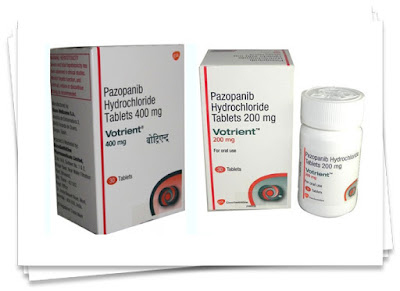What is Carmustine:
It belongs to a group of anticancer substances known as nitrosourea that act by resisting the growth of cancer cells.
Indication: Carmustine is prescribed as a single agent or in combination therapy with other anticancer medications in certain sorts of cancers, like:
- Multiple myeloma
- Hodgkin’s disease
- Non-Hodgkin’s lymphomas
- Malignant melanoma
- Tumours of digestive system tract or gastrointestinal tract
- Brain tumours; medulloblastoma, glioblastoma, astrocytoma and metastatic brain tumours.
Dosage: Dosage directly depends on the body size, medical condition and response to treatment. It is usually recommended at least every 6 weeks. As a single agent, the recommended dose in previously untreated patients is carmustine 150 - 200 mg/m2, should be given intravenously every 6 weeks.
Dosage may also depend on whether carmustine is given together with other anti-cancer drugs. Doses can be adjusted according to how you respond to the treatment.
Administration of Carmustine:
The carmustine 100 mg should always be given to you by a healthcare provider with experience in the use of anticancer medications.
It is given into a vein by a drip over a 1 to 2 hour period. The duration of infusion should not be less than 1 hour in order to avoid the burning and pain at the injected area. The injected area needs to be monitored while administration.
The treatment duration is specified by the healthcare provider and may vary for every patient.
Avoid the use of Carmustine: Do not use this medication:
- in case of the allergic to carmustine or any of the other ingredients of this drug.
- if you have decreased blood platelets, white blood cells or red blood cells, either as a result of chemo or from other causes.
- in patients with severe kidney function impairment.
- in patients with less than 18 years.
- if you are breast-feeding.
Possible side effects: Like all drugs, carmustine injection may cause side effects, although not everybody gets them.
Inform your healthcare provider immediately if you notice any of the following:
Very common: The most common carmustine side effects are following:
- Ataxia
- Dizziness
- Headache
- Blurred vision
- Retinal bleeding
- Fall in blood pressure
- Inflammation of the veins
- Shortness of breath
- Persistent cough,
- Chest pain
- Persistent tiredness
- Delayed myelosuppression
- Severe nausea and vomiting
- Inflammation of the iris and optic nerve
Common: Some commonly reported side effects include;
- Acute leukemias
- Bone marrow dysplasias
- Anaemia
- Anorexia
- Constipation
- Diarrhoea
- Inflammation of the mouth and lips
- Loss of hair
- Flushing of the skin
- Reactions on the injection site
Warnings & Precautions:
- Interact with your doctor, pharmacist or nurse prior to using carmustine 100 mg injection.
- Since the major adverse reactions of this medication is delayed bone marrow suppression, your doctor will monitor blood counts weekly for at least 6 weeks following a dose.
- Notify your doctor if you have symptoms; unusual tiredness, fever, persistent sore throat, enhanced tendency to bruising, throbbing heartbeat.
- Prior to and during treatment, your liver as well as kidney function should be tested and observed regularly.
- Use of carmustine 100 mg may lead to lung damage, an X-ray of the chest region and the lung function tests should be conducted prior to initiating treatment.
- Your healthcare provider will talk to you about the possibility of lung damage and allergic reactions and their signs. If such signs appear, call your doctor right away.
- Women, as well as male of childbearing potential, must use effective contraception while on treatment and for at least 6 months after treatment.
- Avoid breast-feeding while taking this medicine and up to 7 days after completion of treatment. A risk to the infant/newborn cannot be excluded.
Overdose & Missed Dose: As a healthcare provider will be giving you this medicine, it is unlikely that you will be given an incorrect or missed dose.
Tell your healthcare provider if you have any concerns about the missed dose and quantity of drug that you receive.
How to store Carmustine:
Keep carmustine injection out of the sight and reach of children.
Store and transport refrigerated (2°C – 8°C). Avoid using this medication after the expiry date.
FAQ's
What is the best source to buy Carmustine?
In India, the carmustine price is very reasonable. Buy this cost-effective medication from a WHO-GDP & ISO certified pharma wholesaler company. Prices may vary from branded to non-branded drugs.
How is Carmustine (BiCNU) supplied?
Each package mainly includes a vial containing 100mg carmustine and an ampule containing 3mL sterile diluent.
Is use of Carmustine safe?
Carmustine is completely safe in case taken at prescribed dose and duration as instructed by your healthcare practitioner.
Who should not take Carmustine?
Carmustine should not be taken by individuals who have shown a previous hypersensitivity to this medicine.
Is Carmustine a vesicant?
Carmustine falls under irritants amongst chemo drugs. Although when administered at the high doses it may act as vesicant.
What need to avoid while taking carmustine treatment?
Follow your healthcare provider's instructions regarding any kind of restrictions on foods, beverages, or activity.
Does Carmustine inhibit DNA replication?
Yes, Carmustine acts in order to prevent DNA replication.
What if I overdose?
You need to seek emergency medical attention or call your healthcare professionals promptly.
What if I miss a carmustine dose?
Call your healthcare practitioner promptly for instructions in case you miss an appointment for your carmustine injection.
NOTE: The piece of information mentioned about "All you need to know about Carmustine Injection" in this article is just for the informational purposes and is not served as a substitute for medical treatment, consultation, diagnosis of an experienced/qualified healthcare practitioner.

